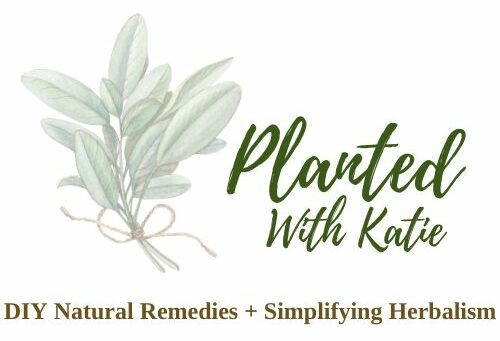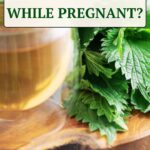Is Nettle Tea Safe During Pregnancy (Side Effects)
Is nettle tea safe during pregnancy? This question is important for many expecting mothers who are curious about the benefits and risks of drinking nettle tea while pregnant.
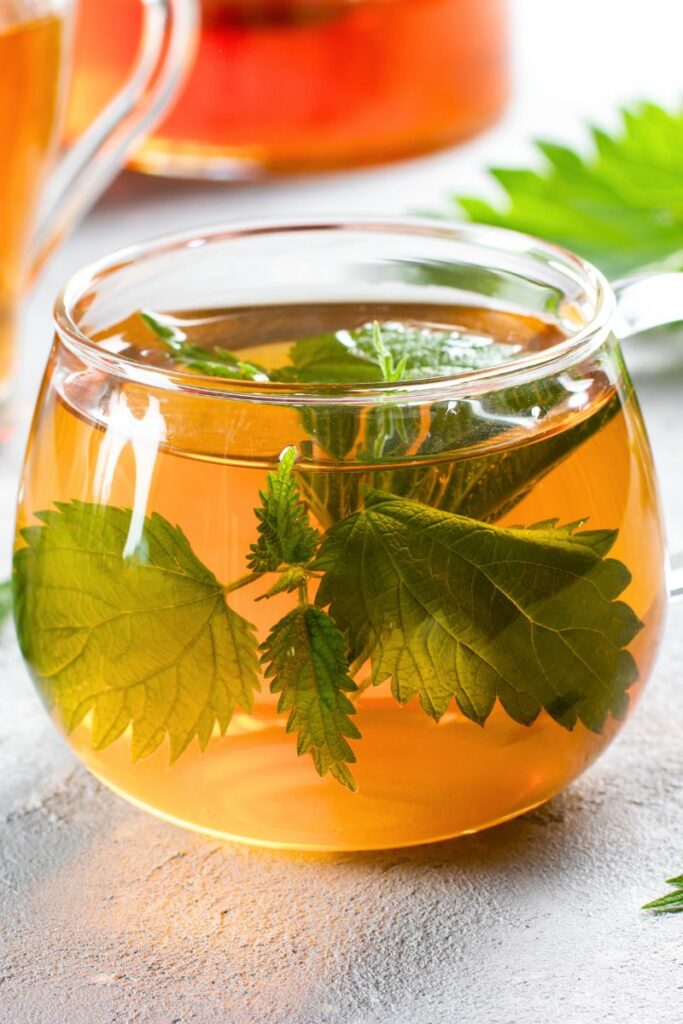
Disclaimer: This is not medical advice. Information and statements shown here are for educational and informational purposes only and are not to replace the advice of your healthcare professional.
This post may include affiliate links. Please refer to our disclaimer for full disclosure.
Nettle tea, made from the leaves of the stinging nettle plant, is a popular herbal medicine. This tea is known for its high vitamin content, including vitamin C, and its anti-inflammatory properties. People have used nettle tea for centuries to help with various health issues like joint pain, hay fever, and urinary tract infections. Some also drink it as a natural diuretic to reduce water retention.
A cup of nettle tea is often seen as a great thing for overall health because it is packed with essential nutrients. These include vitamins, minerals, and antioxidants that can boost the immune system and improve overall well-being. You can find nettle tea in health food stores, and many enjoy it as part of their daily tea routine.
Importance of Understanding the Safety of Herbal Remedies During Pregnancy
When you're pregnant, it's important to be extra careful about what you consume, including herbal remedies like nettle tea. Even though natural remedies can offer many benefits, not all of them are safe for a pregnant woman. Some herbs can cause uterine contractions or other potential risks like high blood pressure or preterm labor.
Healthcare providers always advise pregnant women to check with them before trying any new herbs or teas. This is because the effects of some herbal medicines are not well-studied in pregnancy, and we need to be cautious to avoid any adverse effects.
Drinking nettle tea during pregnancy might be a good idea in some cases, but it's essential to understand both the benefits and the potential risks. This helps ensure the safety of both the mother and the baby. By learning more about nettle tea and its effects, you can make an informed decision and know what to discuss with your healthcare provider.
So, let's dive into the details of nettle tea, its uses, benefits, and whether it's safe to drink during pregnancy.
What is Nettle Tea?
Description of Nettle (Urtica dioica) and Its Common Uses
Nettle tea is made from the leaves of the stinging nettle plant, also known as Urtica dioica. This plant is called "stinging" because it has fine hairs that can cause a stinging sensation when touched. Despite this, the leaves have been used for centuries in herbal medicine.
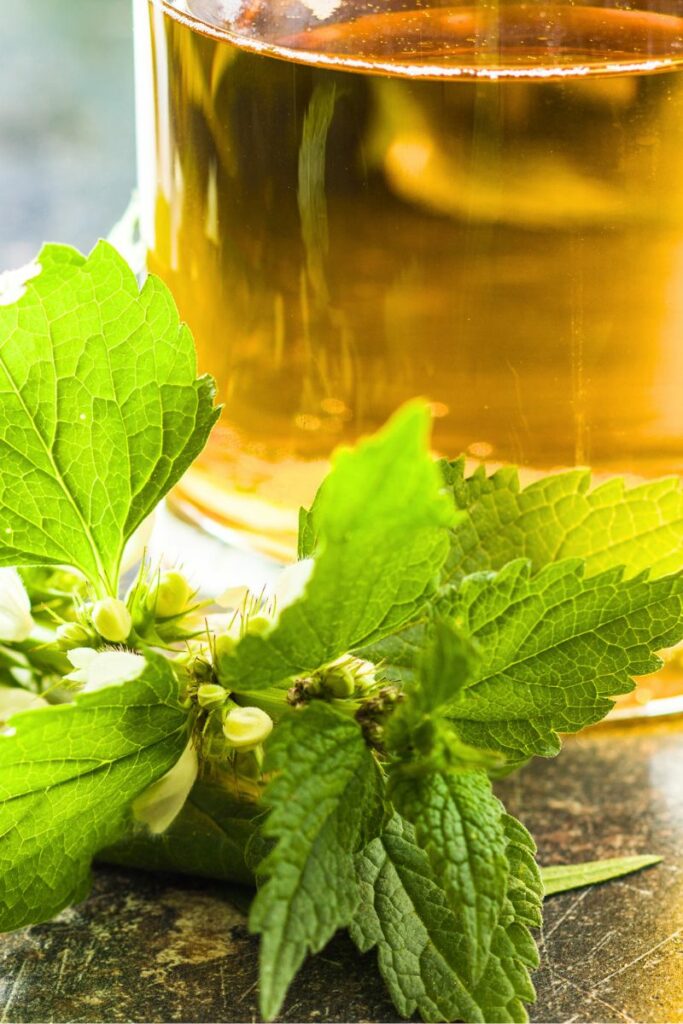
People drink nettle tea for many reasons. It’s known for helping with hay fever, urinary tract infections, joint pain, and even as a natural diuretic to reduce water retention. Nettle tea is also popular for its anti-inflammatory properties, which can help reduce swelling and pain.
Nutritional Profile and Health Benefits of Nettle Tea
A cup of nettle tea is like a natural vitamin pill. It’s rich in vitamin C, vitamin A, and vitamin K. It also has minerals like iron, calcium, magnesium, and potassium. These nutrients are essential for keeping your body healthy.
Nettle tea has many health benefits. Here are some of the great things it can do:
- Boosts the Immune System: The high vitamin C content helps your body fight off colds and other illnesses.
- Reduces Inflammation: Its anti-inflammatory properties can help with conditions like arthritis and other joint pain.
- Improves Digestion: Drinking nettle tea can help with an upset stomach and other digestive issues.
- Supports Kidney Health: Nettle tea acts as a natural diuretic, which can help prevent kidney stones and support urinary tract health.
- Strengthens Bones: The calcium and magnesium in nettle tea are good for your bones, which is especially important during pregnancy.
- Promotes Healthy Skin and Hair: The vitamins and minerals in nettle tea can improve the health of your skin and hair.
Many people enjoy nettle tea as part of their daily tea routine. You can find it in health food stores, and it’s easy to prepare. Just steep the nettle leaves in hot water for a few minutes, and you have a nutritious and tasty cup of tea.
Understanding the benefits and uses of nettle tea is important, especially for pregnant women. It helps you know what you’re putting into your body and how it can help you stay healthy.
Is Nettle Tea Safe During Pregnancy?
Safety of Drinking Nettle Tea During Pregnancy
Yes, nettle tea is both safe and highly nutritive during pregnancy. It’s rich in essential vitamins and minerals like iron, calcium, magnesium, and vitamins A and K, which are particularly beneficial for both mother and baby. Nettle tea supports healthy blood circulation, can help prevent anemia due to its iron content, and promotes overall vitality during pregnancy.
Unlike some teas that contain high levels of caffeine, nettle tea is naturally caffeine-free, making it an excellent choice for pregnant women. While it’s always important to drink herbal teas in moderation, nettle tea is generally considered safe when consumed in typical amounts. As with any new herbal remedy during pregnancy, it’s best to consult with your healthcare provider to ensure it fits your individual health needs.
Incorporating nettle tea into your routine offers a gentle, natural way to support your pregnancy, providing essential nutrients for both you and your baby.
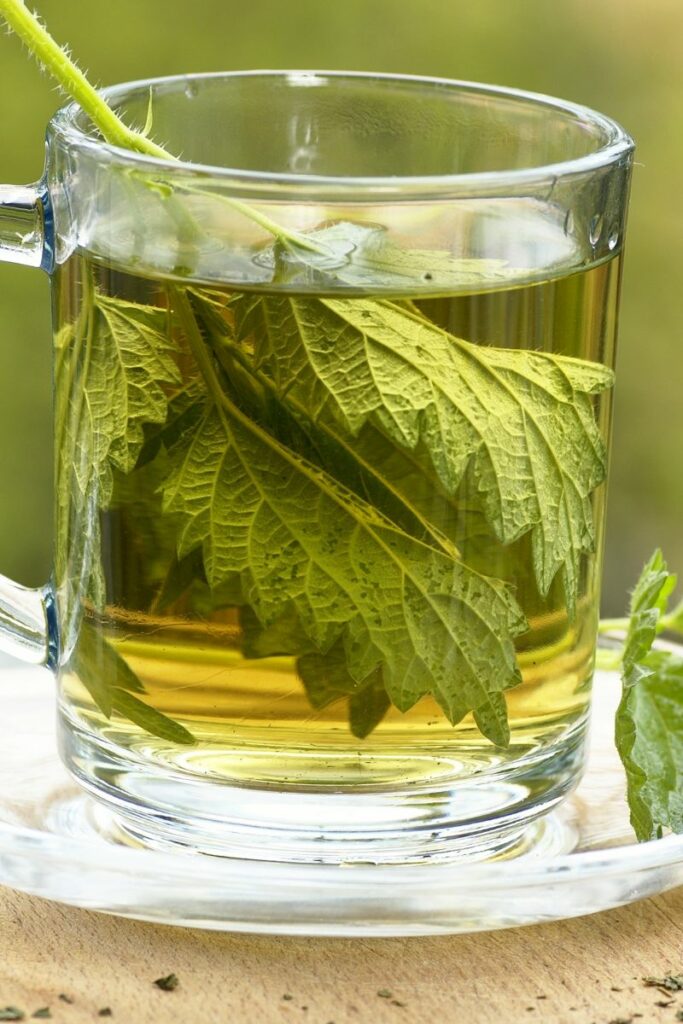
Nettle Tea Use in History and Tradition During Pregnancy
Historically, nettle tea has been used as a natural remedy for many health issues. Traditional herbalists recommend nettle tea for pregnant women because of its high vitamin and mineral content. It’s rich in essential nutrients like vitamin C, iron, and calcium, which are important for both the mother and the baby.
In the second trimester and third trimester, nettle tea is often suggested to help with leg cramps, a common pregnancy problem. It can also support breast milk production after the baby is born.
There is historical evidence that nettle tea has been used to prevent postpartum hemorrhage, a serious condition after childbirth. The medicinal properties of nettle root and nettle leaf tea make it a popular choice among natural remedies.
Despite its benefits, nettle tea can cause allergic reactions in some people. If you have allergic rhinitis or are prone to allergies, start with a small amount and see how your body reacts.
Comparing Nettle Tea to Other Pregnancy Teas
Nettle tea is just one of the many wonderful teas you can drink during pregnancy. Red raspberry leaf tea is another popular choice known to help strengthen the uterus and prepare it for labor. Chamomile tea and peppermint tea are also good options for soothing an upset stomach.
Some teas, like ginger tea, can help with morning sickness, while lemon balm tea is great for calming the nervous system. Each of these teas has its own benefits and potential risks, so it’s important to have a complete list and discuss the best herbs with your healthcare provider.
In the later stages of pregnancy, it’s crucial to avoid high caffeine intake. Herbal teas like nettle tea and fruit tea blends are safer options with lower caffeine content compared to black tea and green tea. This helps ensure you’re not consuming too much caffeine, which can affect your baby’s blood sugar levels and nervous system.
In conclusion, while nettle tea has many benefits and is a popular choice among pregnancy teas, always consult your healthcare provider before making it a part of your daily tea routine. This way, you can enjoy the wonderful properties of nettle tea safely during your pregnancy.
Scientific Studies and Expert Opinions
Summary of Scientific Studies on Nettle Tea and Pregnancy
Scientific studies on nettle tea and pregnancy are limited, but some research suggests it can be beneficial. Nettle tea is known for its high vitamin and mineral content, which can support overall health. However, it's important to be aware of case reports that highlight potential risks. Some studies suggest that drinking too much nettle tea could lead to issues like preterm labor or low birth weight.
Expert Opinions from Herbalists and Healthcare Professionals
Many herbalists and healthcare professionals view nettle tea as one of the best herbs for pregnancy teas. They often recommend it because it’s packed with essential nutrients. However, they also stress the importance of moderation and medical advice.
Herbalists like those from Mountain Rose Herbs praise nettle tea for its medicinal properties. They believe it can help with leg cramps, breast milk production, and even support the nervous system. Health professionals often highlight the anti-inflammatory properties of nettle tea, which can be especially beneficial for pregnant women.
Potential Benefits of Nettle Tea for Pregnant Women
Nettle tea offers several benefits for pregnant women:
- Rich in Vitamins and Minerals: Nettle tea is high in vitamin C, iron, and calcium. These nutrients are essential for both the mother and the baby.
- Supports Breast Milk Production: Drinking nettle tea can help increase breast milk production after childbirth.
- Reduces Leg Cramps: Many pregnant women experience leg cramps, especially in the third trimester. Nettle tea can help reduce these cramps.
- Anti-Inflammatory Properties: Nettle tea’s anti-inflammatory properties can help reduce swelling and pain.
- Helps with Allergic Rhinitis: Some people find that nettle tea helps with allergies like allergic rhinitis.
While nettle tea has many benefits, it's important to drink it in moderation and consult with your healthcare provider. This ensures you avoid any potential risks and enjoy the wonderful teas safely during your pregnancy.
In conclusion, nettle tea can be a good option for pregnant women when used carefully. Always seek medical advice before adding new herbs to your diet, and enjoy the benefits of nettle tea in a safe and healthy way.
Possible Side Effects of Nettle Tea During Pregnancy
While nettle tea is packed with health benefits, it can also have some side effects, especially for pregnant women. Here are a few potential issues:
- Uterine Contractions: Nettle tea might cause mild uterine contractions, which could be risky during pregnancy.
- Allergic Reactions: Some people might experience allergic reactions, such as allergic rhinitis or skin rashes.
- Upset Stomach: Drinking too much nettle tea can lead to an upset stomach or diarrhea.
- Blood Sugar Levels: Nettle tea might affect blood sugar levels, which is important to monitor if you have diabetes.
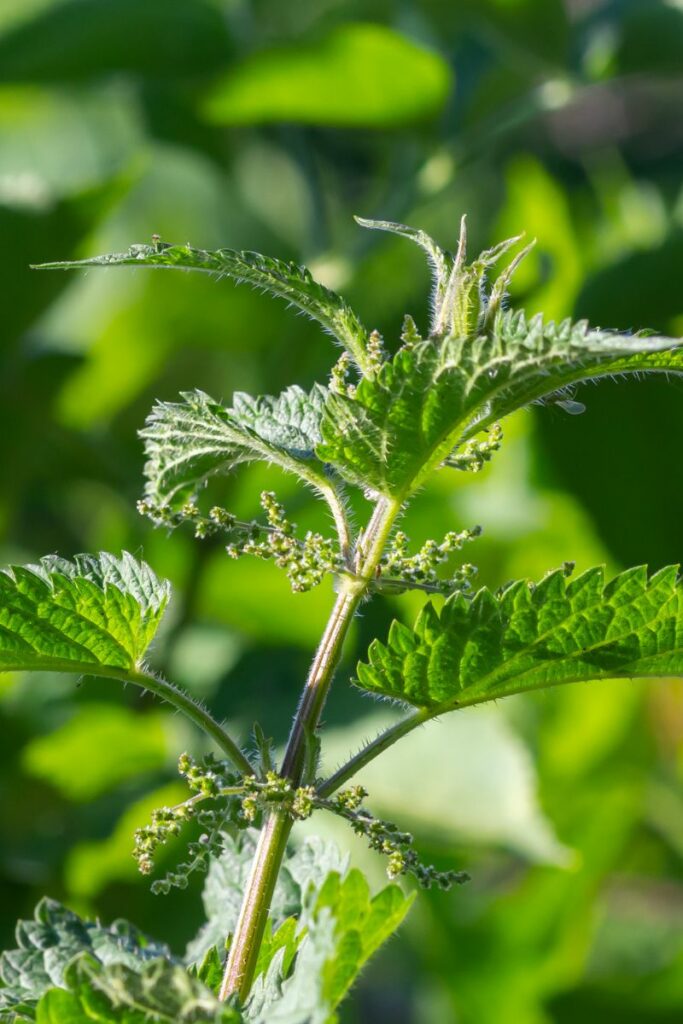
Specific Conditions or Situations Where Nettle Tea Might Not Be Recommended
Nettle tea might not be suitable for everyone. Here are some conditions where it’s best to avoid nettle tea:
- History of Preterm Labor: If you have had preterm labor in previous pregnancies, it’s best to avoid nettle tea because of its potential to cause uterine contractions.
- High Blood Pressure: Nettle tea can interact with medications for high blood pressure, so it’s important to be cautious.
- Kidney Issues: If you have kidney problems, nettle tea might not be safe because it acts as a natural diuretic.
- Allergies: If you are allergic to plants like nettle, it’s best to avoid nettle tea to prevent allergic reactions.
Tips for Safely Consuming Nettle Tea if Pregnant
If you decide to drink nettle tea during pregnancy, here are some tips to ensure it’s safe:
- Consult Your Healthcare Provider: Always get medical advice before adding nettle tea to your diet.
- Start with a Small Amount: Begin with a small cup of tea to see how your body reacts. If you experience any adverse effects, stop drinking it.
- Moderation is Key: Limit your intake to one cup of nettle tea per day to avoid potential side effects.
- Choose High-Quality Tea: Buy your nettle tea from reputable sources like health food stores or trusted brands such as Mountain Rose Herbs to ensure it’s free from contaminants.
- Avoid During Early Pregnancy: It’s best to avoid nettle tea during the first trimester when the risk of complications is higher. The second and third trimesters are generally safer.
In summary, while nettle tea has many benefits, it’s important to be cautious when drinking it during pregnancy. Always consult with your healthcare provider, start with small amounts, and monitor your body’s response. This way, you can enjoy the benefits of nettle tea safely.
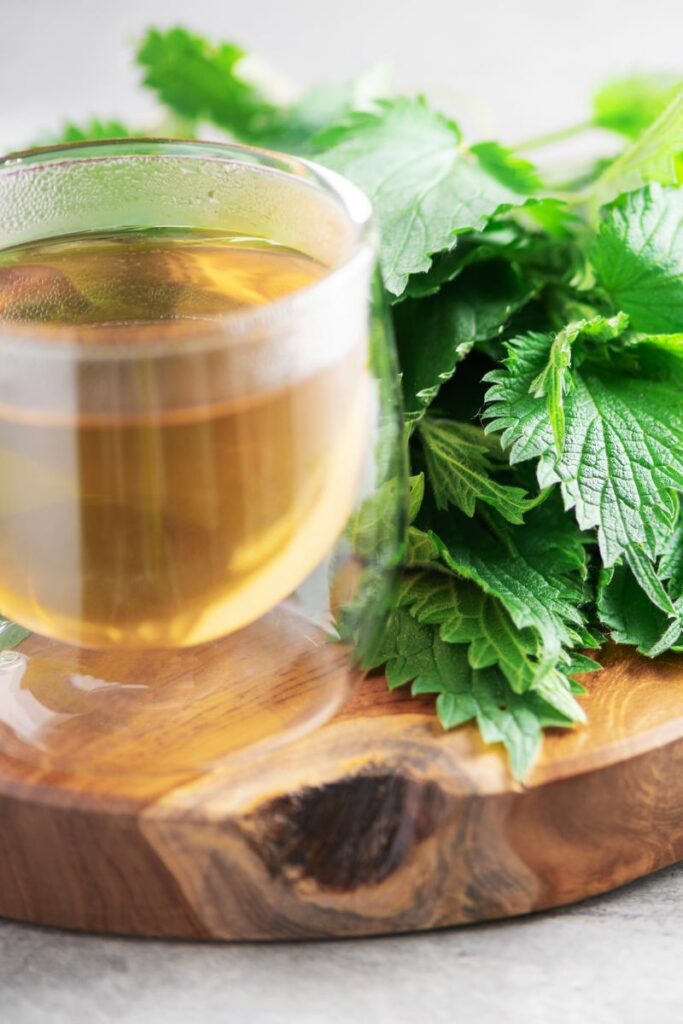
How to Prepare Nettle Tea Safely
Step-by-Step Guide to Preparing Nettle Tea
- Gather Your Ingredients:
- 1 teaspoon of dried nettle leaves
- 1 cup of hot water.
- Boil Water:
- Boil a cup of water and let it cool slightly. You don’t want it to be boiling hot when you pour it over the leaves.
- Steep the Tea:
- Place the dried nettle leaves in a tea infuser or directly into your cup.
- Pour the hot water over the leaves.
- Let the tea steep for about 5-10 minutes. The longer it steeps, the stronger the tea will be.
- Strain and Serve:
- If you used a tea infuser, simply remove it. If you put the leaves directly in the cup, pour the tea through a strainer into another cup.
- Your nettle tea is ready to drink!
- Optional Add-Ins:
- You can add a bit of honey or lemon to taste. This can make the tea more enjoyable if you find the flavor too strong.
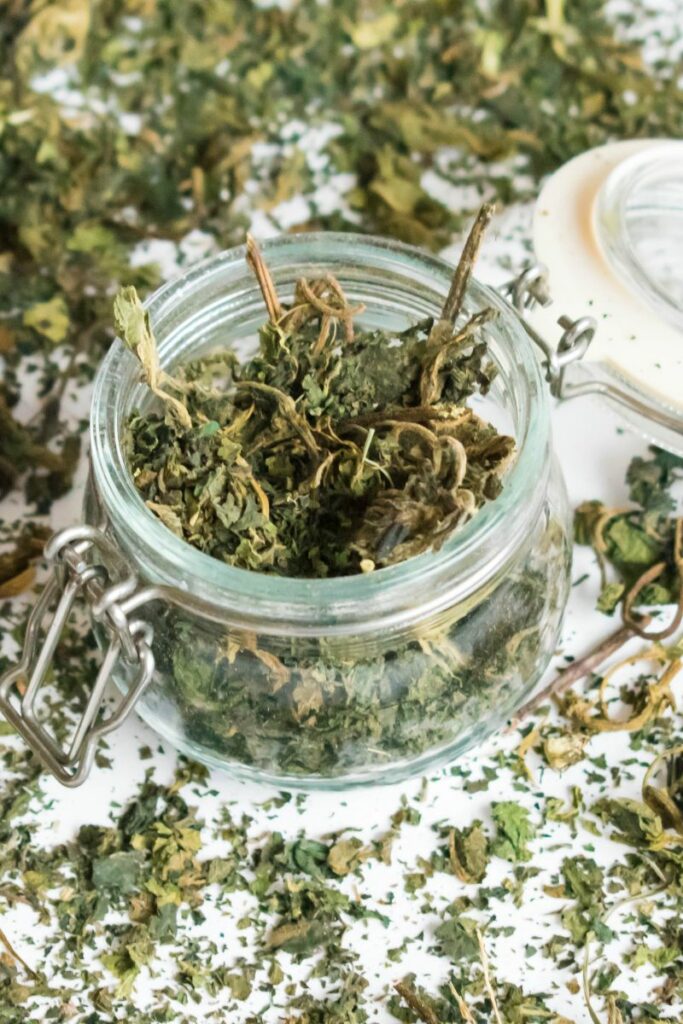
Recommendations for Sourcing High-Quality Nettle Leaves
- Health Food Stores: Look for dried nettle leaves at your local health food store. They usually have a good selection of high-quality herbs.
- Online Shops: Trusted online stores like Mountain Rose Herbs offer high-quality, organic nettle leaves. Make sure to read reviews and check for certifications like organic or non-GMO.
- Local Farms: If you have access to local farms that grow herbs, you might be able to source fresh nettle leaves. Just ensure they are grown without pesticides.
Tips on Incorporating Nettle Tea into a Pregnancy-Safe Diet
- Moderation: Limit your intake to one cup of nettle tea per day. This helps avoid potential side effects while still enjoying the benefits.
- Alternate with Other Pregnancy Teas: Rotate nettle tea with other safe pregnancy teas like red raspberry leaf tea, chamomile tea, and peppermint tea. This variety can provide a range of benefits and keep your tea routine interesting.
- Pair with Meals: Drink your nettle tea with meals to help with digestion and ensure you’re getting a balanced intake of nutrients.
- Listen to Your Body: Pay attention to how your body reacts to the tea. If you notice any discomfort or unusual symptoms, stop drinking it and consult your healthcare provider.
- Combine with Healthy Snacks: Enjoy your cup of nettle tea with healthy snacks like fruits, nuts, or whole-grain crackers. This makes it a part of a nutritious diet.
By following these steps and tips, you can safely enjoy the benefits of nettle tea during your pregnancy. Always remember to consult your healthcare provider before making any changes to your diet.
Frequently Asked Questions
Can Nettle Tea Induce Labor?
Nettle tea is generally safe, but it can cause mild uterine contractions in some cases. While there's no strong evidence that it induces labor, it's important to drink it in moderation and consult your healthcare provider, especially as you get closer to your due date.
Is Nettle Tea Safe in the First Trimester?
It's best to avoid nettle tea during the first trimester when the risk of complications is higher. The second and third trimesters are generally considered safer for drinking nettle tea. Always seek medical advice before adding any new herbal teas to your diet during pregnancy.
How Much Nettle Tea is Safe to Drink During Pregnancy?
Moderation is key. One cup of nettle tea per day is usually considered safe for most pregnant women. This helps you enjoy the benefits without risking potential side effects. Again, always consult with your healthcare provider to ensure it's safe for you.
Are There Any Long-Term Benefits of Drinking Nettle Tea While Pregnant?
Drinking nettle tea during pregnancy can provide long-term benefits due to its rich nutritional profile. The high levels of vitamins and minerals support overall health, boost the immune system, and promote healthy skin and hair. It can also help with breast milk production and reduce leg cramps, providing ongoing benefits even after pregnancy.
By understanding these FAQs, you can make informed decisions about including nettle tea in your pregnancy diet. Always prioritize your health and consult with healthcare professionals to ensure the best outcomes for you and your baby.
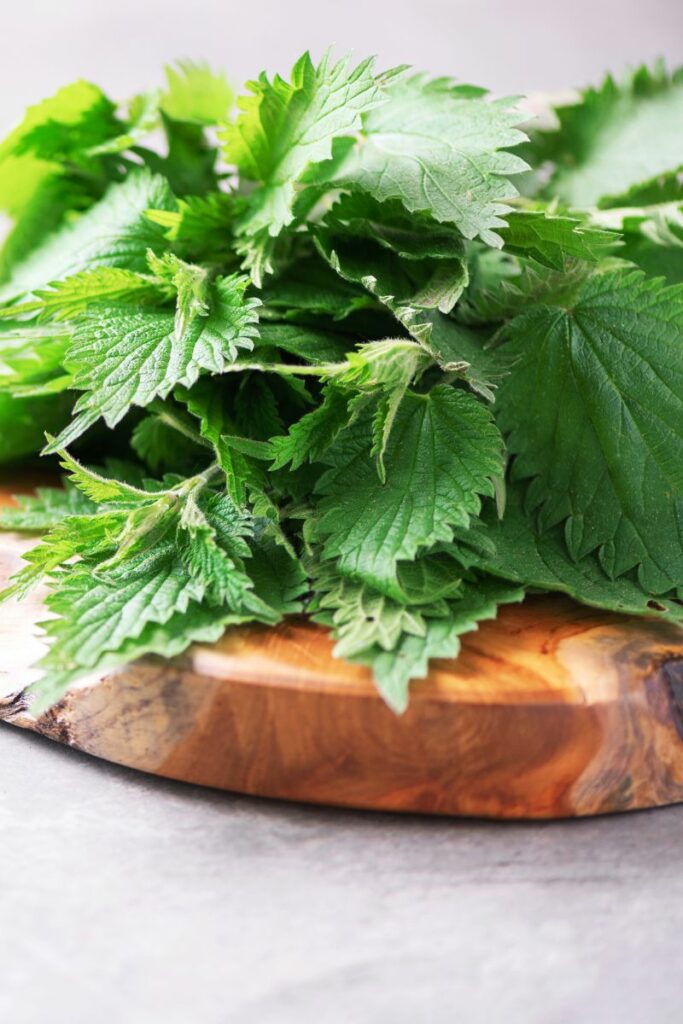
Conclusion
Nettle tea, made from the stinging nettle plant, is a popular herbal remedy known for its high vitamin and mineral content, including vitamin C, iron, and calcium. It's praised for its anti-inflammatory properties and benefits like reducing leg cramps, boosting breast milk production, and supporting overall health during pregnancy. However, it’s crucial to consume it in moderation to avoid potential side effects like uterine contractions, allergic reactions, and digestive issues.
While nettle tea can be a great addition to a pregnancy-safe diet, it's important to source high-quality nettle leaves and prepare the tea properly. Drinking one cup of nettle tea per day and rotating it with other safe pregnancy teas, such as red raspberry leaf tea and chamomile tea, can provide a balanced intake of nutrients and benefits.
References
- WebMD - Nettle: Benefits, Side Effects, and Preparations.
- National Center for Complementary and Integrative Health (NCCIH) - Nettle.
- American Pregnancy Association - Herbal Teas During Pregnancy.
- National Institutes of Health (NIH) - Herbal Medicine and Pregnancy.
- Mountain Rose Herbs - Nettle Leaf Profile.
- American Botanical Council - Stinging Nettle Monograph.
- Journal of Herbal Pharmacotherapy - Nettle Leaf During Pregnancy:
- International Journal of Women's Health - The Use of Herbal Medicines During Pregnancy.
- Journal of Obstetrics and Gynaecology - Herbal Preparations for Pregnancy.
- PubMed - Urtica Dioica: Nutritional and Medicinal Benefits.
